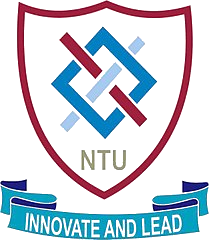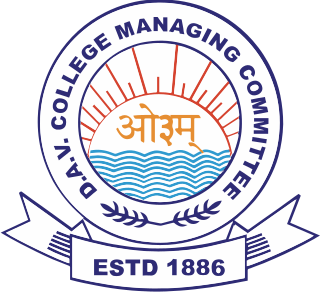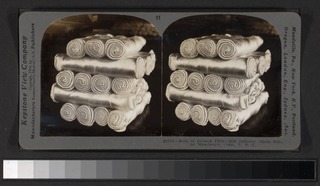Related Research Articles

Ludhiana is the most populous city in the Indian state of Punjab. The city has an estimated population of 1,618,879 as of the 2011 census and distributed over 310 km2 (120 sq mi), making Ludhiana the most densely populated urban centre in the state. It is a major industrial center of Northern India, referred to as "India's Manchester" by the BBC. It is also known as the commercial capital of Punjab.

Panjab University (PU) is an Indian collegiate public state university located in Chandigarh. Funded through both State and Union governments, it is considered a state university. It traces its origins to the University of the Punjab in Lahore, which was founded in 1882. After the partition of India, the university was established on 1 October 1947, and called East Punjab University. Initially housed primarily at a cantonment in Solan, it later relocated to a newly built campus in Chandigarh, and was renamed Panjab University. It is accredited by NAAC at five star level, with the highest NAAC A++ accreditation grade.
Punjab Engineering College (Deemed to be University) (abbreviated PEC or PEC Chandigarh) is a public research & technical institution in Chandigarh. It was founded in 1921 in Lahore, established in Chandigarh in 1953, and focuses on the field of applied sciences, particularly engineering and technology. It is well-known for its ungarduate and graduate programmes in engineering, to which the entry is through the Joint Entrance Examination – Mains and Graduate Aptitude Test in Engineering. It offers degrees such as Bachelor of Technology, Master of Technology and MBA. It also has a comprehensive graduate program offering doctoral degrees in Science, Technology, Engineering and Mathematics.

Sir Shanti Swarup Bhatnagar OBE, FNI, FASc, FRS, FRIC, FInstP was an Indian colloid chemist, academic and scientific administrator. The first director-general of the Council of Scientific and Industrial Research (CSIR), Bhatnagar is revered as the Father of Research Laboratories in India. He was also the first Chairman of the University Grants Commission (UGC).

The National Textile University (NTU) (Urdu: is a public university located in Faisalabad, Punjab, Pakistan. It is a premier institute of textile education in Pakistan.

The D.A.V. College Managing Committee, familiarly known as DAVCMC, is a non-governmental educational organisation in India and overseas with over 900 schools, 75 colleges and a university. It is based on the ideals of Dayananda Saraswati and Arya Samaj. The Dayanand Anglo-Vedic (DAV) education system also comprises colleges offering graduates and post-graduates degrees in areas of study all over India.

Uttar Pradesh Textile Technology Institute, is a state government founded textile engineering college in Kanpur, Uttar Pradesh. It is one of the oldest and premier textile Institute of North India, established in 1914. It offers professional degrees of bachelor's of technology (4years) in 4 streams Textile Technology, Textile Chemistry, Man Made Fibre Technology and Textile Engineering; and Master's in technology in textile technology and textile chemistry to students selected through a State Entrance Exam (UPSEE) conducted by Dr.A.P.J. Abdul Kalam Technical University (AKTU) every year.
Manikya Lal Verma Govt. Textile and Engineering College is an autonomous engineering institute of the government of Rajasthan managed by Manikya Lal Verma Textile Institute society in Bhilwara, Rajasthan, India.

The textile bleaching is one of the steps in the textile manufacturing process. The objective of bleaching is to remove the natural color for the following steps such as dyeing or printing or to achieve full white. All raw textile materials, when they are in natural form, are known as 'greige' material. They have their natural color, odor and impurities that are not suited to clothing materials. Not only the natural impurities will remain in the greige material, but also the add-ons that were made during its cultivation, growth and manufacture in the form of pesticides, fungicides, worm killers, sizes, lubricants, etc. The removal of these natural coloring matters and add-ons during the previous state of manufacturing is called scouring and bleaching.

Guru Nanak Dev Engineering College is one of the oldest engineering institutions of the northern region situated at Gill Park, Ludhiana, Punjab, India. The foundation stone of the college was laid on 8 April 1956 by Hon'ble Dr. Rajendra Prasad, the first President of India. The college has been named after 1st Sikh Guru Guru Nanak Dev Ji.

The Government College of Technology, Samanabad, Faisalabad is a public college located in Faisalabad, Punjab, Pakistan. It was established in 1966 as Government Polytechnic Institute and upgraded as Government College of Technology in 1981.

Punjab has a long history of education.
S. P. Oswal Jain is an Indian industrialist and the present head of the Vardhman Group The Government of India honoured him in 2010, with the Padma Bhushan, the third highest civilian award, for his services to the fields of trade and industry.

Sukh Dev FNA, FASc was an Indian organic chemist, academic, researcher and writer, known for his contributions in the development of guggulsterone, a plant-derived steroid used as a therapeutic and nutritional agent. He conducted advanced research in biomedical science and natural products chemistry and held 55 patents for his findings.
Bahauddin Zakariya University College of Textile Engineering, also known as BZU college of textile engineering, is an institute in southern Punjab, which provides engineering degrees in the field of textile. It is situated on 6-km Khanewal road in Multan, Pakistan.
Amritsar is and was the second largest city of East Punjab and United Punjab. It is a Big Commercial, Trading, Textile and Tourist hub of Punjab. There is a proposed Software Technology Park at Amritsar to make it an IT hub. This STPI centre will be functional by the next fiscal year.
Ludhiana is the largest city and largest industrial hub in Punjab, India. It is the biggest city north of Delhi. It is known for hosiery and bicycle manufacturing.
The Lodi Fort is a citadel in the city of Ludhiana, Punjab, India. The fortress is located on the banks of the river Sutlej and contains a tunnel to leading to the neighboring town of Phillaur.

Greige goods are loom state woven fabrics, or unprocessed knitted fabrics. Greige goods undergo many subsequent processes, for instance, dyeing, printing, bleaching, and finishing, prior to further converting to finished goods such as clothing, or other textile products. "Grey fabrics" is another term to refer to unfinished woven or knitted fabrics.
Shearing is a kind of mechanical finish in which the appearance of the fabric is enhanced by cutting the loops or raised surface to a uniform and even height. The machine may have a spiral blade similar to a reel lawn mower. A shearing machine can cut the loop or the pile to a desired level. Shearing was most commonly used to make woollens and worsted materials. It was a part of dry finishing of woollen and worsted goods. Previously, shearing was also a component of gigging or napping; when partially produced goods were exposed to shear in order to improve the impact of gigging or napping, the process was referred to as "cropping".
References
- 1 2 3 4 Punjab (India) (1970). Punjab District Gazetteers: Ludhiana. Supplement. Controller of Print. and Stationery. p. 554.
- 1 2 Worrall's Textile & Engineering Directory. D.B. Mahatme. 1985. p. 464.
- ↑ Punjab (India) (1920). Report on the Administration of the Punjab and Its Dependencies. Superintendent, Government Printing, Punjab. p. 83.
- ↑ Rutnagur, Sorabji M. (1983). The Indian Textile Journal. Business Press. p. 42.
- ↑ "Government Institute of Textile Chemistry and Knitting Technology Ludhiana Punjab". www.punjabcolleges.com. Retrieved 2021-02-12.
- 1 2 3 "gitcktpolyldh.ac.in – gitcktpolyldh.ac.in" . Retrieved 2021-02-12.
- ↑ Dept, Punjab (India) Finance (1983). New Expenditure for the Year. Government Press. p. 195.
- ↑ Socialist India. Indian National Congress. All India Congress Committee. 1975.
- ↑ Shashi, Bala (1988). Management of Small-scale Industries. Deep and Deep Publications. p. 273.
- ↑ "Government Institute Of Textile Chemistry & Knitting Technology - [GITCKT ], Ludhiana - Admissions, Contact, Website, Facilities 2021-2022". collegedunia.com. Retrieved 2021-02-12.